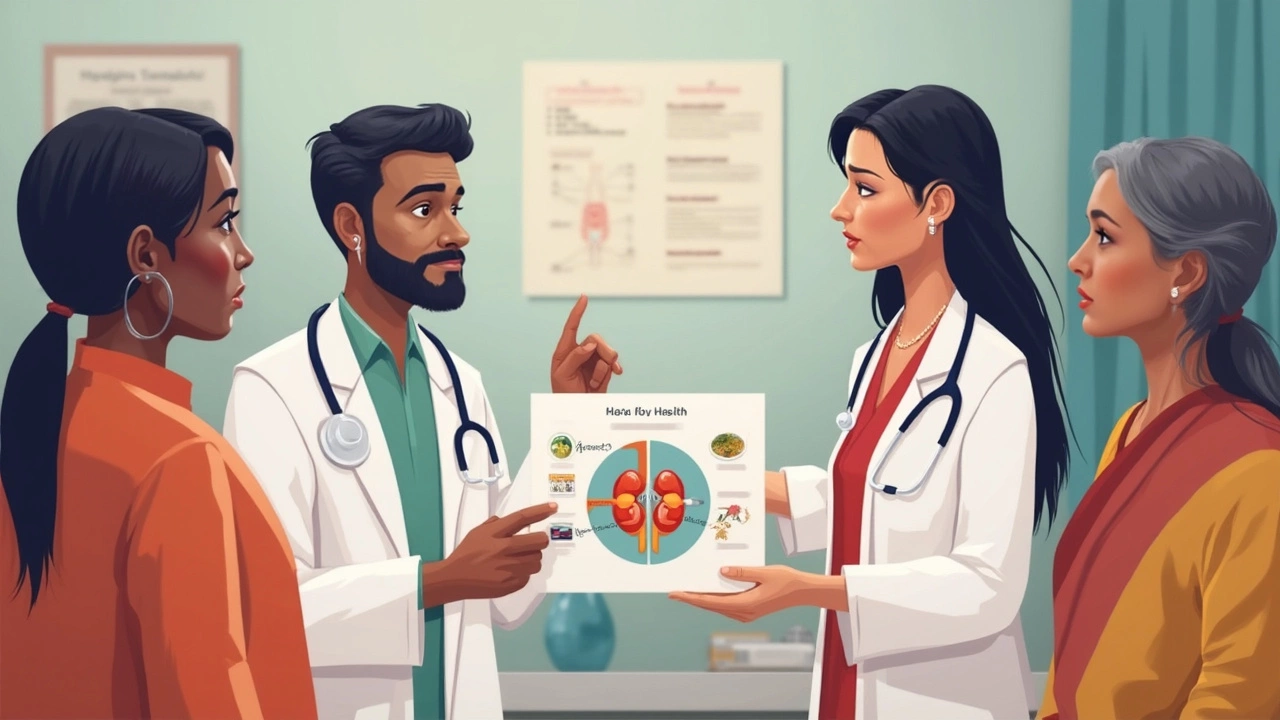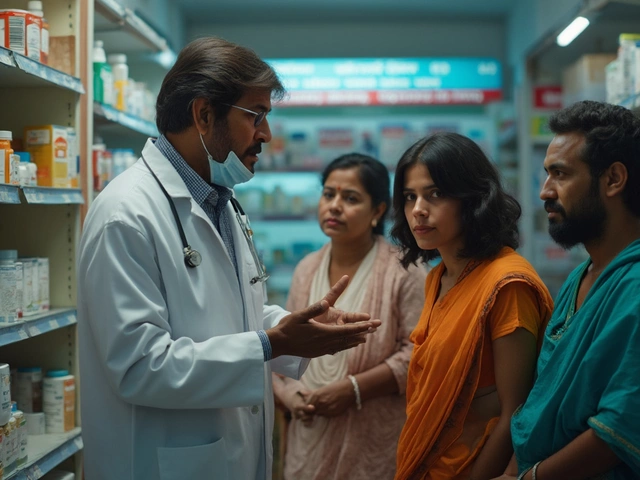Ever spot those tiny B12 tablets in the vitamin aisle and wonder if there’s such a thing as too much of a good thing? You’re not alone. Most people grab B12 hoping for a quick boost in energy, sharper focus, or maybe just because their doctor said it’s “good for you.” But talk to a kidney doctor, and you’ll hear a different tune—some are actually wary about too much B12, especially if your kidneys aren’t in top shape.
The truth? The human body doesn’t hold on to extra B12 very well. Whatever your body doesn’t use, it usually flushes out in your urine. That sounds pretty safe, right? But things get a little more complicated if your kidneys aren’t working perfectly. If your kidneys struggle to filter blood like they’re supposed to, B12 (and other stuff) can build up in your system.
Here’s the catch: research on B12 causing direct kidney damage is pretty thin. You won’t find any cases of someone with totally healthy kidneys suddenly having trouble just from popping a few extra B12 pills. But for folks with kidney disease, some newer studies hint that extra B12—especially when combined with other supplements—can raise risk for problems. Think of it like a jigsaw puzzle: kidney function, B12 levels, and other vitamins all fitting together in a way doctors are still figuring out.
- Why People Take B12 (and How Much Is Too Much?)
- What Science Really Says About B12 and Kidneys
- Signs You’re Overdoing B12 Supplements
- Simple Rules for Safe Supplement Use
Why People Take B12 (and How Much Is Too Much?)
There’s a reason you see vitamin B12 at the front of every pharmacy. People use it for all kinds of stuff: lack of energy, tingling hands, brain fog, or because they read it’s good for nerve health. If you’re vegan or vegetarian, B12 is a must, since it mostly shows up in meat, fish, and dairy. Older adults, folks with tummy issues, or those who’ve had stomach surgery also grab B12 since the body sometimes forgets how to absorb it well as you age or if your gut is cranky.
B12 doesn’t just work alone — it actually helps your body make red blood cells, keeps your nerves firing right, and even affects your DNA. No B12 means you can get seriously tired, cranky, or develop nerve problems. But that doesn’t mean more is always better.
So, what’s the right amount? The daily recommended dose for most adults is just 2.4 micrograms (mcg)—and you can hit that easily with a small piece of chicken or fish. Pregnant or breastfeeding women need just a smidge more. But B12 supplements can be wild: Some pills pack 500 mcg, 1,000 mcg, or even more per dose.
| B12 Source | Typical Amount (mcg) |
|---|---|
| Daily Food (meat/eggs/dairy) | 2-4 |
| Basic Multivitamin | 6-25 |
| Single B12 Tablet | 100-1,000 |
| B12 Injection | 500-1,000 |
Here’s the thing: there’s no winning record for “too much B12” in healthy folks, because your kidneys will pee out the extra. That said, if those kidneys aren’t working well, the excess can hang around longer than you’d like. And if you’re mixing B12 with a bunch of herbal supplements, nobody really knows how they all play together.
- If you eat animal products regularly, you’re probably set on B12.
- If you’re popping high-dose B12 tablets every day and you don’t have a diagnosed deficiency, it’s worth asking your doctor or a dietitian if you really need them.
- Watch for mega-dose “energy” shots—they can contain way more B12 than your body could ever use in a day.
Bottom line: B12 is safe for most people in regular amounts, but giant doses might be pointless—or risky if you already have kidney trouble.
What Science Really Says About B12 and Kidneys
If you look at the science, there’s one main thing everyone agrees on: most healthy people can’t really overdose on B12, because your body just flushes out whatever it doesn’t need. It’s a water-soluble vitamin, so you literally pee out the extra. That’s why you don’t hear reports of B12 causing kidney damage in healthy adults who take normal supplements.
But the story changes if your kidneys don’t work well to begin with. People with chronic kidney disease often have a harder time clearing out extra vitamins from their blood. There was a headline-making study in 2010 in the Journal of the American Medical Association that looked at folks with advanced kidney disease. They found that high-dose B vitamins (B12 included, along with B6 and folic acid) didn’t slow kidney decline—in fact, the group taking all those vitamins actually had a slightly higher risk of their kidneys getting worse. Keep in mind, they were taking massive doses—far above the usual daily needs.
Still, that doesn’t mean B12 itself is toxic. Sometimes, it’s the combo of B12 with other supplements, or the fact that the kidneys are already fragile, that makes things go sideways. There’s no strong proof that B12 hurts healthy kidneys. But if you already have kidney problems, especially if you’re on dialysis, your doctor probably pays close attention to any supplement you use, including B12.
Bottom line for kidney health: for most folks, B12 is safe. For anyone with kidney issues, megadoses of B12 (or any supplement, really) can be risky. If your doctor says you need B12 because actual blood tests show you’re low, that’s different—but “just in case” super-high doses don’t seem to help and might even add stress to already struggling kidneys.
- If your kidneys are healthy, regular B12 supplements are usually nothing to worry about.
- If you have chronic kidney disease, talk to your doctor before trying high-dose B12.
- No real evidence shows B12 causes kidney damage when used correctly, but big doses + weak kidneys = possible risk.

Signs You’re Overdoing B12 Supplements
You might think, “If my body just pees out extra B12, what’s the harm?” Here’s where things get interesting. For most folks, even big doses don’t usually cause serious trouble. But taking massive amounts every day—or mixing B12 with other stuff—sometimes brings up side effects and odd symptoms.
Here’s what to actually keep an eye out for if you’ve been hitting the B12 pretty hard:
- B12 in super-high doses sometimes causes acne-like breakouts. Lots of people see tiny rashy bumps on their face or chest after ramping up on high-grade supplements.
- Some report feeling restless, like their nerves are buzzing. Insomnia gets worse for a few, making it tough to fall—or stay—asleep.
- Pins and needles in fingers or toes show up occasionally, especially for those taking B12 shots without any medical advice.
- Very rare, but some folks notice swelling or flushing in their hands, face, or legs.
If your kidneys are already on the weak side, your body might not flush things out as fast. This can bump B12 blood levels high enough to show up on lab tests—sometimes way out of the normal range.
Doctors use blood tests to check for this. Normal blood B12 levels usually fall between 200-900 picograms per milliliter (pg/mL). Here’s how it typically looks:
| B12 Level (pg/mL) | Meaning |
|---|---|
| <200 | Low (deficiency) |
| 200-900 | Normal |
| 1000+ | High—possible supplement overload |
Folks with kidney issues can sometimes have levels over 1500 or even 2000 pg/mL, especially if mixing high-dose B12 with herbal supplements that stress the kidneys.
When in doubt? Watch for changes in your skin, weird tingling, or sleep getting worse. If you’re taking other meds (especially for kidneys), always run new supplements past your doctor.
Simple Rules for Safe Supplement Use
Staying smart about B12 and herbal supplements is less about fear and more about plain common sense. If you want the benefits without risking your kidneys, here are rules most experts agree on.
- B12 is water-soluble. Most healthy people pee out what they don’t need, but people with kidney problems can build up extra levels, which may cause issues.
- Don’t guess your dosage. The average daily need for adults is about 2.4 micrograms (mcg). Many over-the-counter supplements far exceed this—some pills pack 500-1,000 mcg. More is not always better.
- If you’re taking other herbal supplements, watch out for overlapping effects. Some herbal products like St. John’s Wort or high-dose green tea can stress your kidneys or interact with vitamin metabolism.
- If you have chronic kidney disease or reduced kidney function, check with your doctor before starting any new supplement—even natural or herbal ones.
- Look for brands that are third-party tested. It’s easy for supplements to hide more (or less) than they claim because regulation isn’t tight.
If you’re curious, here’s what B12 content often looks like in typical products and foods:
| Source | B12 Per Serving (mcg) | % Daily Value |
|---|---|---|
| Standard Multivitamin | 6 | 250% |
| B12 Supplement Tablet | 500 | 20,833% |
| Fortified Breakfast Cereal | 1.5 | 60% |
| Beef Liver (3 oz) | 70 | 2,917% |
Your body only takes what it needs and dumps the rest, but if your kidneys aren’t working right, this system jams up. Don’t just copy someone else’s supplement routine—your body, and your kidneys, are unique.
And here’s a useful trick: if your urine turns super bright yellow after popping a B12 tab, that’s usually the excess passing through. This doesn’t mean your kidneys are struggling, but it does tell you your body’s had enough for the moment.
Bottom line—stick close to the recommended daily dose, pick quality products, and loop in your doctor if your kidneys aren’t perfect or if you’re stacking on a lot of herbal stuff.





